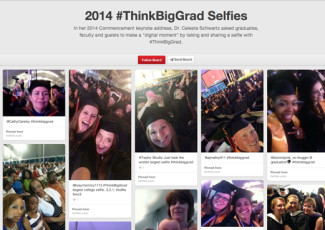Improving Student Success with OERs
By Rebecca L. Weber
August 8, 2014
Online resources provide cost-effective access to critical learning materials.
It wasn’t that long ago that massive open online courses (MOOCs) were the talk of higher education. MOOCs still make their share of headlines, though not always for the right reasons.
On community college campuses, another acronym — OER, which stands for Open Educational Resources — is where it’s at.
Administrators say OERs, predominantly online texts and teaching resources that can be freely downloaded and shared among students without restriction, save students money and dovetail with the open-access mission of community colleges.
“If the cost of materials, such as textbooks, is three or four times the cost of taking a class, we are fooling ourselves about the open-access nature of our venture,” says James Glapa-Grossklag, dean of educational technology, learning resources and distance learning at College of the Canyons, in Santa Clarita, California, and a self-described OER evangelist. “Our college president has stated publicly that Open Educational Resources align with our overall goals at the college.”
Cost saver
Glapa-Grossklag estimates that the college’s adoption of low- and no-cost texts has saved students $750,000 in the past academic year.
Textbooks became so expensive at Delaware County Community College (DCCC), near Philadelphia, that several students were refusing to purchase the books at all. Ultimately, administrators say, the lack of preparation became a hindrance to student advancement.
“A lot of students were not prepared, because they didn’t have materials,” says Dolores Martino, DCCC’s acting dean of learning support services. “They were sharing a book among three or four students, but it was not making the rounds quickly enough.”
The problem is broader than that. In a recent survey of higher education students at two- and four-year colleges, 65 percent of students said they decided not to buy textbooks due to high costs.
Last year, AACC’s Community College Daily reported on a “textbook-free” degree at Virginia’s Tidewater Community College. That program, which uses OERs, potentially could save students thousands of dollars throughout their educations.
Glapa-Grossklag and Martino say they have witnessed significant improvements in student engagement as their campuses have moved to support OERs. What follows is their advice for integrating the resources on your campus.
Don’t try to reinvent the wheel. Mathematics faculty at College of the Canyons set out to find the very best materials available for intermediate algebra and statistics classes. What they found was that the materials developed by Carnegie Mellon were open license, so the College of the Canyons faculty used those.
Take a multipronged approach. “Sociology faculty were driven very much by the cost barriers their students were facing,” says Glapa-Grossklag. Part-time and full-time faculty worked to write OER-based texts together. They did some of the writing on their own. They often found open-license chapters to include in their textbooks.
Fill a need not just for your students but for other students, too. At College of the Canyons, administrators encourage other community colleges to use and share their open materials. In California, any materials that are produced with a state grant must be openly licensed.
Focus on gateway courses. A course that has 20 sections with 30 students each, with a $100 textbook, represents far more savings than a specialty class with low enrollment. Focus on the big-ticket resources first, and then work your way down.
Vary the medium. Some students want PDFs that they can print at the campus store; others want to read PDFs on computers and mobile devices. DCCC has a tech lending program, where students can borrow e-readers and laptops preloaded with resources for the semester.
Offer students support. Feedback from DCCC students isn’t surprising — they love the cost savings. But many need training to effectively work the tablets they borrow.
Use the resources of the broader community. Conferences and workshops connect leaders and faculty who want to get involved with the OER movement.
Looking for more? Check out the Open Education Consortium.








